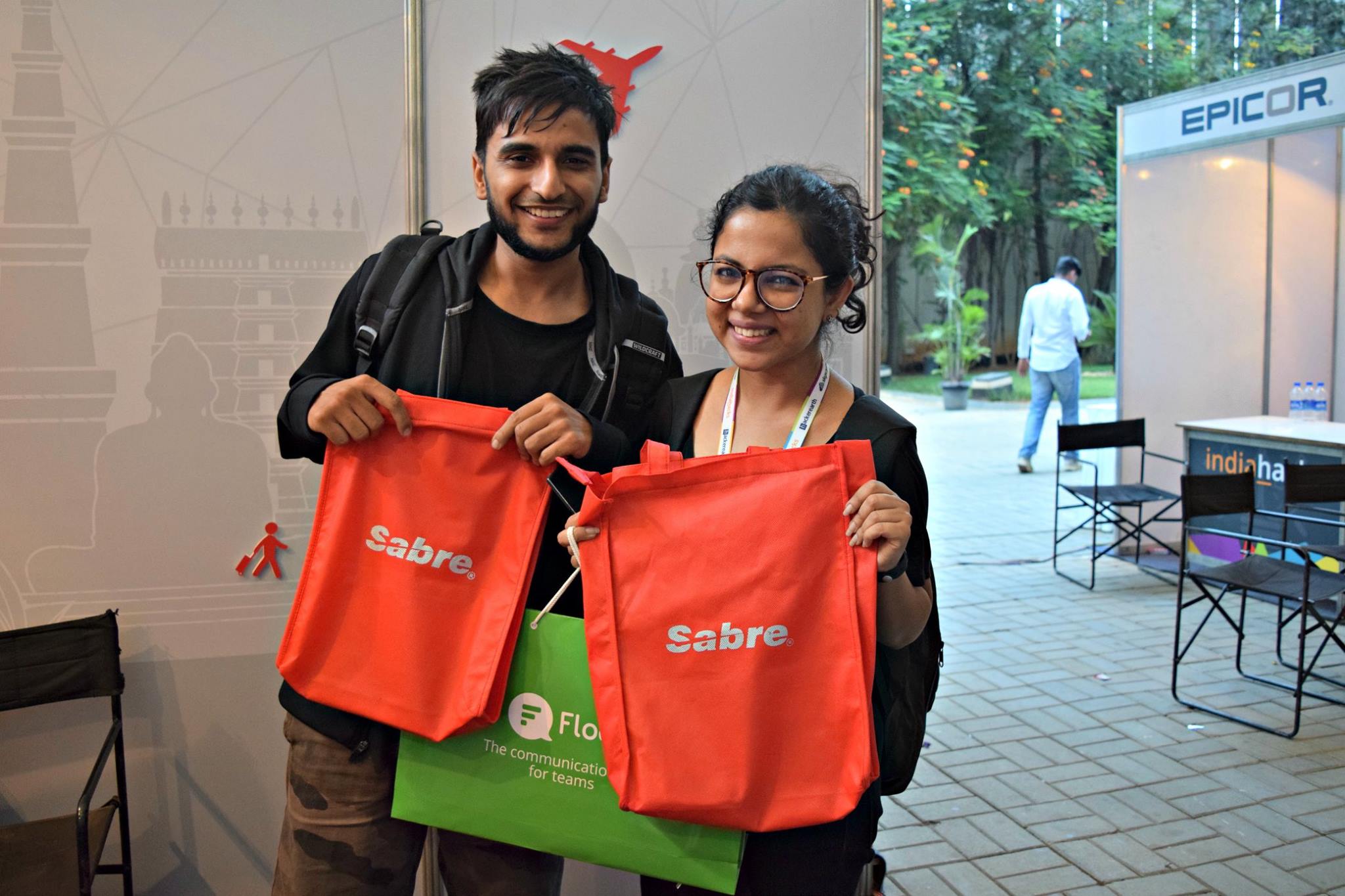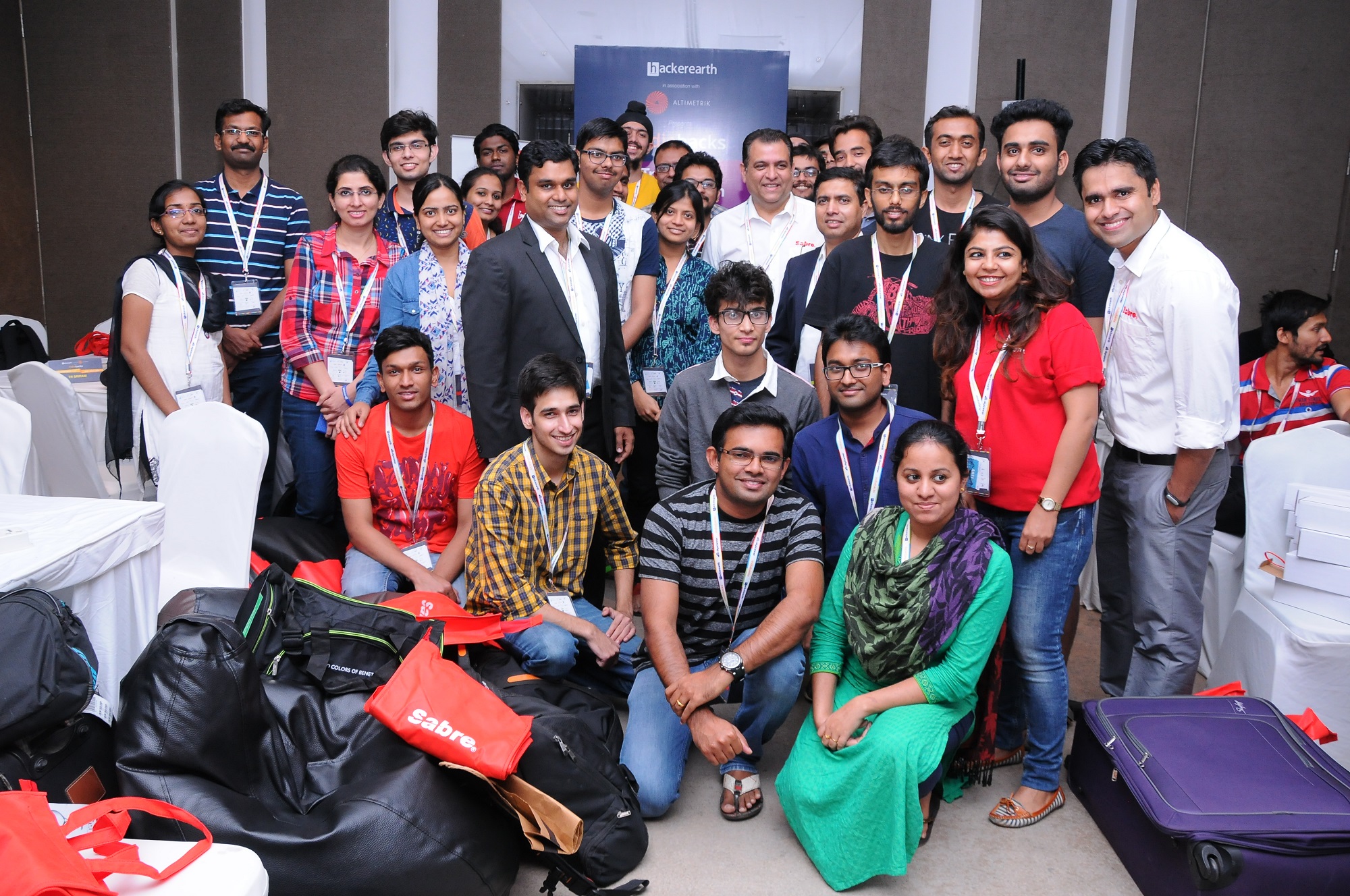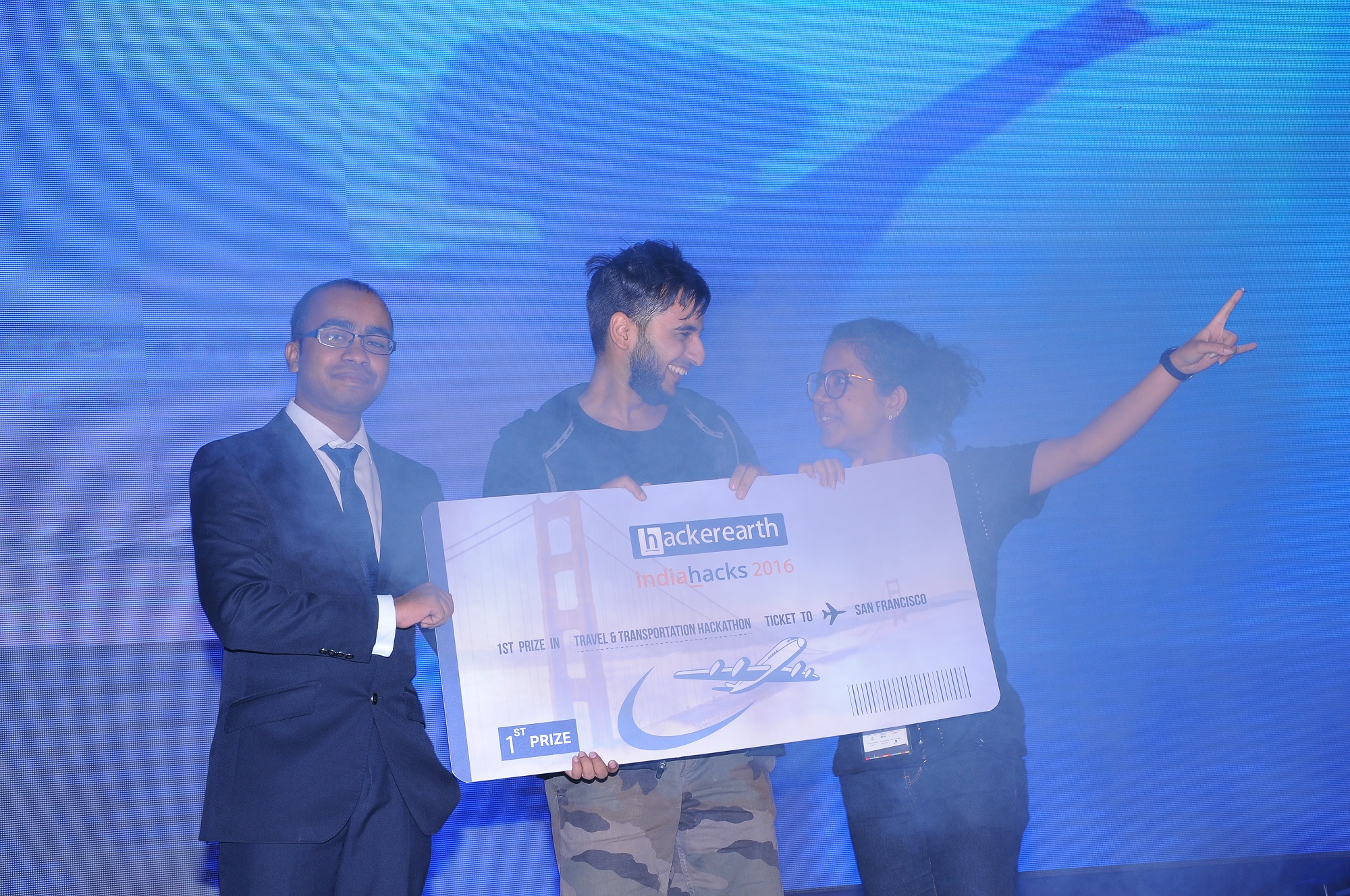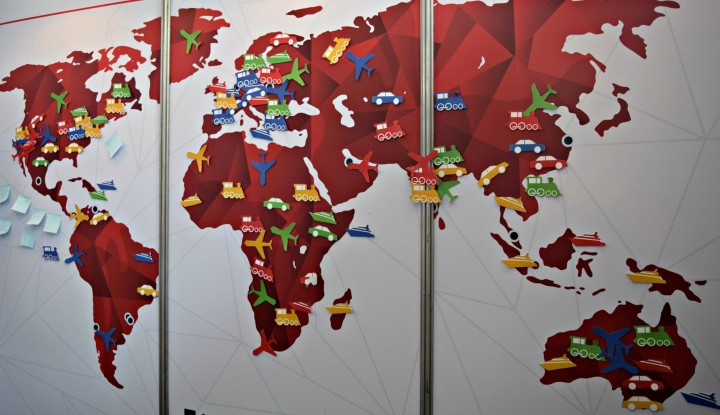This march, Bangalore witnessed one of its most fiercely competitive hackathon at HackerEarth’s IndiaHacks 2016. More than 200 developers from across India hacked for 18 hours to build fully functional web or mobile applications. The hackathon was two months long, divided into both an online and offline track, and attracted 142,987 participating developers from amateurs to start-ups to engineers working at top multi-national corporations.
The event focused on building innovative technology solutions in the areas of Financial Services, Internet of Things, Game Development, Open Source, Online Commerce, and Travel and Transportation.
Sabre’s partnership with HackerEarth for the Travel and Transportation track was aimed to build transformational applications in travel. Of all the hackathon participants, 10,783 developers focused on Travel and Transportation. These teams created 673 new ideas to enhance travel experience, make hotels smarter, connect the third world travelers, improve payment solutions, heighten crisis management and other solutions for travelers and travel providers.



Inspiring developers
The developer community was a focus during the event, with Sabre mentors engaging throughout the online hackathon event, offering guidance, motivation and direction. Several events were organized to engage including a podcast with two Sabre directors of software development, Monish Matthias and Srinivasan Manickam. The two industry veterans shared their views on how technology has transformed the way millions of people travel every day.Technology has affected travel in a massive way. It’s all about the traveler’s experience. How does the experience evolve? You can look at it from the perspective of the traveler, the travel provider and the community that is enabling this travel, such as the travel agents. Over the years, a wide variety of products of come onto the market addressing all three perspectives.From the first global distribution system that was built by Sabre in 1960 to the first Google Glass Flight Search application created by the company, there have been countless changes and evolutions in technology for the travel industry. Currently, system interactions are changing our experiences through things like virtual reality, augmented reality, biometrics and voice recognition. By encouraging developers to think about current challenges facing the industry, the stage was set for more informed approaches.
Across the finish line
Based on stringent evaluation criteria, 20 teams where selected to present their prototypes. During the offline hackathon event, there was enough buzz in the country to make #IndiaHacks a trending topic Twitter for more than three hours! The winner of the Travel and Transportation track was an app called TripEase. When frequent travelers make bookings via multiple vendors depending on the mode of transport and discounts available, there are booking messages from each vendor. This makes it difficult for travelers to source information at one go, forcing travelers to search through emails or other storage methods. The application parses through the SMS inbox of a phone and collects all travel itineraries in one place allowing frequent travelers to easily access information in one place. The app also enables the traveler to get alerts for all upcoming travels. Dhruv Batheja, software developer at PayPal and Karishma Gulati, software developer at inMobi innovated the app. They also plan to integrate with more travel vendors and incorporate travel suggestions, custom notifications, weather notifications, cab vendors and more.Largest technical conference
The offline hackathon was part of the technical conference that featured many tech talks, panel discussions and hangout sessions from industry leaders. It was an extraordinary opportunity for the tech community to come together, form connections, get engaged, and share ideas. The event attracted more than 1,250 young and skilled developers from all over the country. The Sabre HR booth at the conference was crowded and many engineers expressed interest in our technology and job opportunities. They also participated in a selfie contest on Facebook, and shared their ultimate vacation location on a world map. Shail Maniar, vice president and managing director, shared his views during a panel discussion on ‘The Evolution of Tech Stack’ on how cloud computing, data analytics and internet of things are shaping the travel industry to new heights. Shekhar Manjargi, director, product development, Sabre shared insights about ‘Travel Technology 2025: Trends and Skill Sets’ and explained how future technological developments like augmented reality and virtual reality are being utilized to change the view of guest experience. All in all, it was a highly energetic event that filled everyone with lot of knowledge and helped us reach exceptional talent in the coding community!


